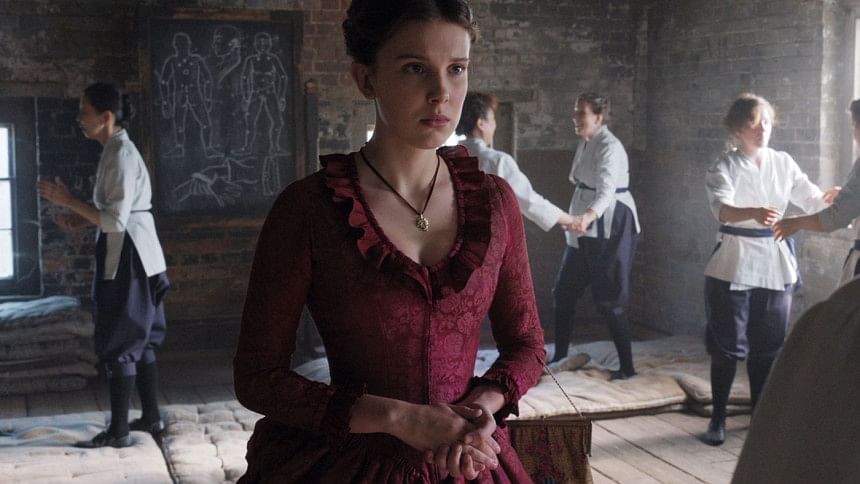Enola Holmes – A fiercely feminist tale in the Sherlockian universe

Enola Holmes released on Netflix on September 23, 2020, starring Millie Bobby Brown, who also serves as a producer on the film. Supporting her is the delightful Helena Bonham Carter in yet another quirky role as Eudoria, the matriarch of the Holmes family. Henry Cavill and Sam Claflin play Enola's older brothers Sherlock and Mycroft, respectively.
The movie is based on the first book of author Nancy Springer's Sherlock Holmes spin-off, The Enola Holmes Mysteries. Enola lives with her mother only – her father passed away years ago, and her brothers have moved away. Eudoria has taught her everything there is to know about being a strong, opinionated young woman. However, mysteriously, on Enola's 16th birthday, Eudoria goes missing, which brings the two Holmes brothers back home, starting off a hunt with Enola at the centre of the action.
For many of us, Sherlock Holmes novels were an introduction to not just detective stories but also to London of the late 1800s. Reading the books and imagining what that era must have been like was such a joyful part of my childhood. The movie, Enola Holmes, brings back the same wonder and awe I felt as a teenager, reading Arthur Conan Doyle's stories. The Enola Holmes Mysteries, written by a woman from 2006 to 2010, carries the undertone of a more relatable and realistic understanding of the modern world.
Enola Holmes is being lauded for its feminist writing, as well as director Harry Bradbeer and writer Jack Thorne's empathetic and inclusive gaze on the female protagonist – for good reason.
Enola and her mother read about Joan of Arc, practice martial arts and conduct homemade science experiments. She is brought up in a world where she is free and capable of doing anything she wants. We, as viewers, are also at peace with her universe, because to Enola, her agency and her desire to assert it is not an anomaly. In fact, her conservative brothers feel like the misfits in the movie.
Mycroft refers to his 16-year-old, carefree, rebellious sister as "wild" – a characteristic seen as unfavourable for women of the time. When on the run or undercover, Enola constantly has to dress up as a man, or a widow, because according to her, people are scared of widows. She essentially points out that women in Victorian England are deemed important enough just to marry and produce children, living only as a wife and a mother. But when their husbands die, people don't know what to do with them. How far we have come from those notions varies for women across the world, as some have to obey ancient customs to this day. Even though Enola Holmes is set in a Sherlockian universe, its light shines the brightest only from its women.
The movie goes where Greta Gerwig did with Little Women. Although Gerwig's film is more mature than this one by a huge margin, both talk about non-conforming female characters who are almost aggressive in their defiance, compelling us to empathise with them, because the other side is simply faulty. In Enola Holmes, however, things are a lot less subtle – Millie Bobby Brown talking into the camera about the oppression of the corset – doesn't quite land. Her acknowledgment of the audience feels confused, as this is a period film. Some of Enola's discoveries throughout the film are also a little too convenient.
Nonetheless, the movie is committed to its fierce feminism and highlighting the importance of active political participation of citizens, especially through characters like Edith, a suffragette who serves tea at a bakery. Enola Holmes offers us an opportunity to learn more about the Reform Act of 1884 and about the wealth of gratitude we owe to feminists, who fought for a more equal world at great personal risks, when rules were being written to include only more men, and women were left entirely out of conversations. Yet, suffragettes, on whom Eudoria is based, swung into action.
For this, we have to admire Millie Bobby Brown, who, at just 16, made a powerful choice not just as an actor but also as a producer, to back this story. Her promise of a long career in the performing arts is already astounding and exciting.

 For all latest news, follow The Daily Star's Google News channel.
For all latest news, follow The Daily Star's Google News channel. 



Comments